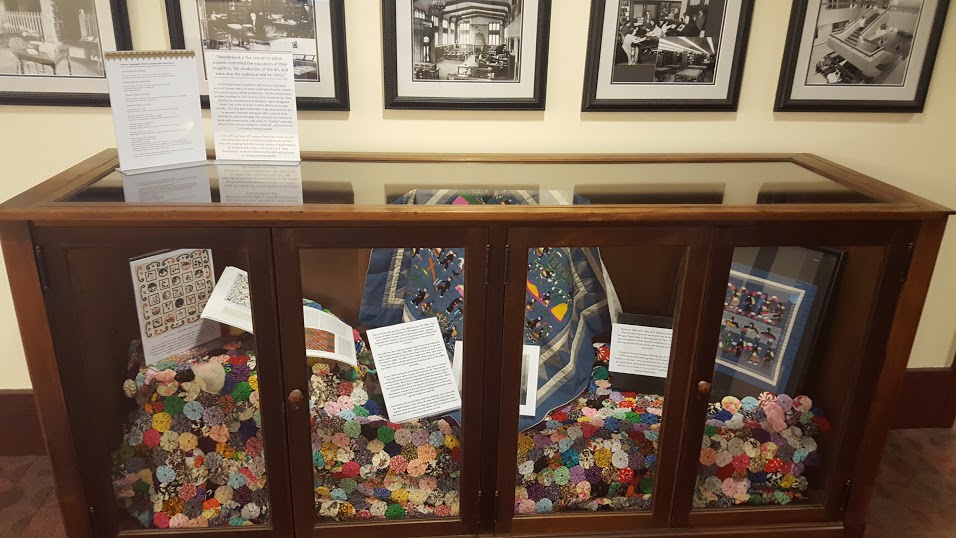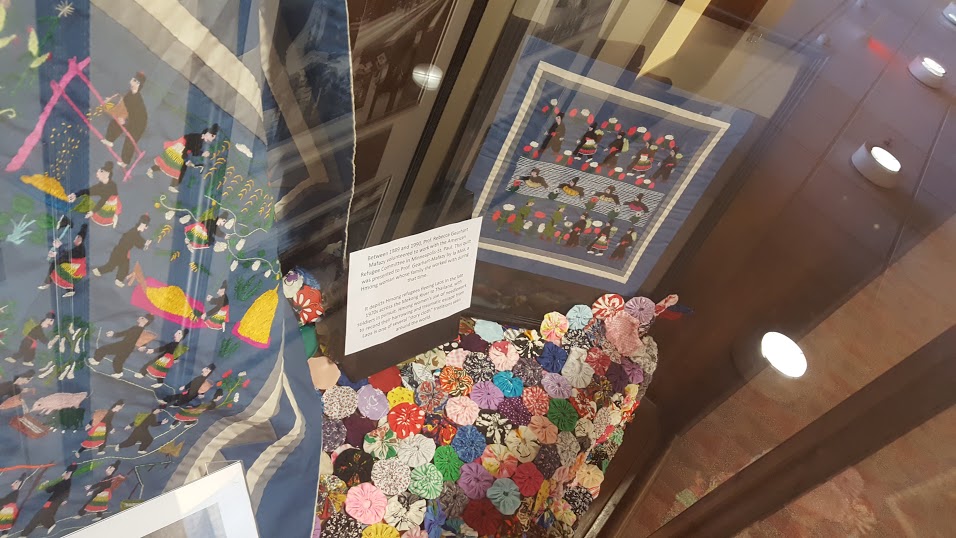Dorothy Burge – “Threads of Change: Quilting for Social Justice” – Burge will speak at The Ames Library on Monday, September 19th at 4pm (Beckman Auditorium) as part of “Women Changing the World: Activists and Pathbreakers,” a series of talks and films sponsored by the Political Science Department. These events are made possible through generous grants provided by the Betty Ritchie-Birrer ’47 and Ivan Birrer PhD Endowment Fund.
“Needlework is the one art in which women controlled the education of their daughters, the production of the art, and were also the audience and its critics.” -Patricia Mainardi, “Quilts: The Great American Art,” The Feminist Art Journal (Winter 1973).
Feminist pioneer Elizabeth Cady Stanton ascribed women’s lower status to their undervalued work in both home and factory textile production. On the other hand, women involved in 19th-century social movements, from abolition to temperance to women’s rights disagreed about the utility of quilts in their efforts to change society. Quilting and handicrafts in general were purely in women’s domain and were often used as both statements about everyday life, a reason for communal work and conversation, and a way to “soothe” anxieties about more radical change by “clothing” political events in familiar feminine garb.
In the 20th and late 20th century, feminists in the second and third wave have turned to quilting as art, symbol, and craft, lauding both the female history of quilt making, its ability to tell a story, and as part of a “new domesticity” in which independent crafts and activism are celebrated and valued. The African-American quilting tradition, that includes the use of quilts by members of the Underground Railroad to send messages to slaves seeking refuge, is being celebrated and preserved.
Quilt-making today is often used as a form of social justice activism sometimes called “craftivism” (craft + activism): to raise awareness about an issue (such as gun violence or racism); to memorialize victims and place pressure on policy makers (as with the AIDs Quilt or the Drones Quilt Project for victims of American drone strikes); to chronicle the daily life of a people in the face of globalization pressures or to tell about more extreme experiences, such as displacement and migration; to place pressure on oppressive regimes by revealing their crimes (as with the Chilean arpilleras); and to inspire cultural change (such as the Monument Quilt Project which seeks to change rape culture in America).
The organization Quilt for Change raises awareness on global issues that affect women (http://quiltforchange.org/)
Social justice quilting speaks powerfully across borders and across time, and through quilting anyone can be empowered to become an agent for social change.


